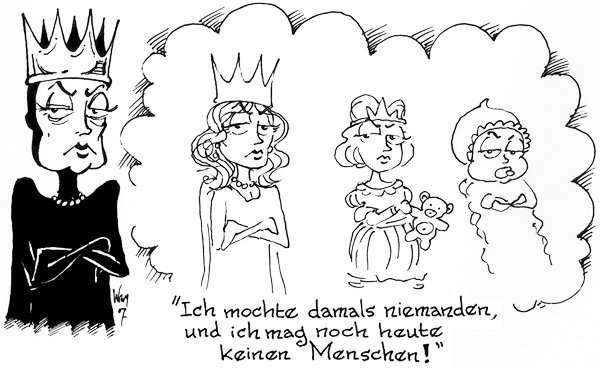Modalverben im Imperfekt – Modal Verbs in the Simple Past
Modalverben im Imperfekt
Just as modal verbs do in the present tense, they also modify other verbs in the past tense as well; they provide some nuance or suggest some emotional reaction to an action.
Thus, modal verbs modify other verbs. They are most often used along with an infinitive – the basic form of a verb, what you would find in the dictionary – which comes at the end of the sentence or the clause.
![]() Modal verbs in the past tense
Modal verbs in the past tense
| 1. dürfen • durfte • be allowed to, be permitted to | |
| ich durfte | wir durften |
| du durftest | ihr durftet |
| er/sie/es durfte | sie durften |
| 2. können • konnte • able to, can | |
| ich konnte | wir konnten |
| du konntest | ihr konntet |
| er/sie/es konnte | sie konnten |
| 3. mögen/möchten • mochte • like/would like (to) | |
| ich mochte | wir mochten |
| du mochtest | ihr mochtet |
| er/sie/es mochte | sie mochten |
mögen and möchten only have one simple past form (because möchten is merely a form of mögen as well!). In the past tense, mögen can be used either with an infinitive or with a direct object.
| 4. müssen • musste • must, have to | |
| ich musste | wir mussten |
| du musstest | ihr musstet |
| er/sie/es musste | sie mussten |
| 5. sollen • sollte • supposed to | |
| ich sollte | wir sollten |
| du solltest | ihr solltet |
| er/sie/es sollte | sie sollten |
| 6. wollen • wollte • want to | |
| ich wollte | wir wollten |
| du wolltest | ihr wolltet |
| er/sie/es wollte | sie wollten |
![]() Word order
Word order
Modal verbs in the past tense follow the same patterns as they did in the present tense.
Basic
The conjugated modal verb takes the second position in a sentence or clause, and an infinitive comes at the end of the sentence or clause.
With coordinating conjunctions
The same pattern – conjugated modal verb in second position and infinitive at the end of a sentence or clause – holds true when two sentences – that become two clauses of a new, complex sentence – are connected by coordinating conjunctions: aber, beziehungsweise, denn, entweder … oder …, oder, sondern, und, weder … noch …
With subordinating conjunctions
Just as with present tense modal verbs, the word order changes drastically with subordinating conjunctions, such as als, bevor, dass, ob, weil, for example. The conjugated verb (here, the modal verb) goes to the end of the sentence or clause with the subordinating conjunction.


